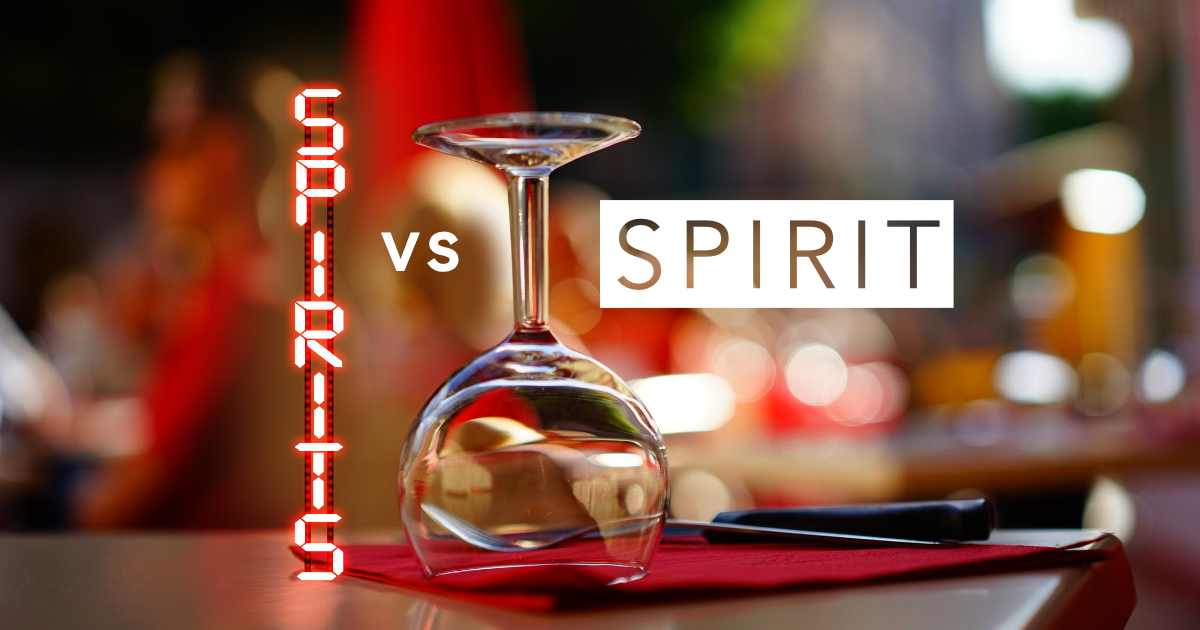The authority of Scripture commands, “And be not drunk with wine, wherein is excess [dissipation]; but be filled with the Spirit” (Eph. 5:18). Many today in the Christian realm seem to be re-thinking the matter of drinking alcoholic beverages. Re-thinking is not categorically wrong, but valid thinking must be sourced in the truth of the Word of God. While there is much more to this issue, Ephesians 5:18 emphasizes a “sobering” point.
I used to wonder why the Lord put such a lofty command as “be filled with the Spirit” with a warning about alcoholic beverages. But there is an amazing contrast in this verse that highlights the point. The text essentially says, “On the one hand don’t do this; but in contrast, on the other hand do this.”
First, do not allow yourself to come under the influence of alcohol. The world labels alcoholic beverages as “spirits” for a reason. Just as God does not violate man’s will, He does not let the devil and his cohorts of darkness violate man’s will either, which is implied in the scriptural admonishment, “Neither give place to the devil” (Eph. 4:27). The devil can’t “take place” or ground in your life unless you “give place” or ground. While the Holy Spirit works through active cooperation (the cooperation of faith), the devil works through passivity. Passivity gives ground to the devil—passivity of the mind or will and so forth. This is why substance abuse is so dangerous. This is also why this authoritative Word of God in this text is so important to heed. When you come under the influence of alcohol, you give ground to the devil. You open the door for the enemy to get a beachhead. You are no longer under the influence of the Holy Spirit. You are unquestionably walking after the flesh. Coming under the influence of alcohol causes a boldness to sin. It gives the enemy the upper hand in your life.
Second, do allow yourself to come under the influence of the Holy Spirit. The simple phrase “be filled with the Spirit” is an imperative—therefore it’s a matter of obedience to God. It’s plural—therefore it is for all believers, not just a so-called “elite.” The voice of the verb is passive—therefore this is not something you do, but that which you allow the Holy Spirit to do through you as you depend on Him. The definite article “the” is actually absent—therefore the grammar emphasizes the quality or power of the Spirit, not the person of the Spirit. In the context, the emphasis is on the “influence” of the Spirit. The command is literally “Allow yourself to come under the influence of the Spirit.” Just as coming under the influence of alcohol causes a boldness to sin, coming under the influence of the Holy Spirit causes a boldness to do right.
The point is not merely just not to get drunk. The point is: Which influence will you place yourself under? While the specific command is to not get drunk, the unusual contrast in the verse emphasizes coming under wrong or right “spirit” influences. On the one hand do not allow yourself to come under the influence of spirits, but on the other hand do allow yourself to come under the influence of the Spirit.

John Van Gelderen
Post Author












If Evangelist Van Gelderen would be so kind, I would appreciate delving deeper into this controversial subject, perhaps at a later time on this blog. In this post, he references “coming under the influence” of alcohol and seems to conflate it with drunkenness. Is this indeed intentional, or could the position be Biblically defended that the controlling influence of alcohol is a subjective matter unique to each digestive system? Ultimately the question is, is this a matter of Christian liberty? I do not mean for this comment to derail or distract from the very real and sound truth(s) found in… Read more »
Thank you for your comment. I may address this issue again in a future post. It is certainly fair to distinguish between coming under the influence and being totally drunk. I alluded to this in the article with the comment:
“The point is not merely just not to get drunk. The point is: Which influence will you place yourself under?”
Bro Vangelderen i was under the impression that when being filled with the Spirit we’re not only filled with His power but His person. If im not mistaken in Eph 3:14-19 Paul prays that believers may know what its like to have Christ fill their entire being, in this passage it doesnt seem to imply only Christ’s power and influence. Ofcourse Christ indwells our spirit permanetly (Rom 8:9) but from there if we allow Him He spills over to indwell the rest of our being. So in a nutshell my question is, when being filled with the Spirit are we… Read more »
Good thought Hector! The power comes from the person. It is simply a matter of emphasis.